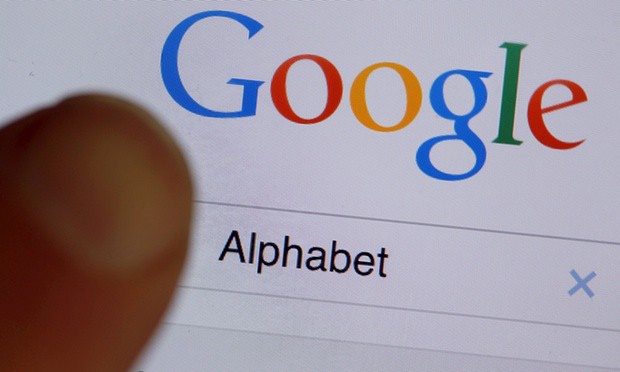Alphabet Inc ’s top tax executive told UK authorities that the new UK tax – popularly called “Google Tax” – will not apply to the Internet firm, says a report from Bloomberg. The tax – the Diverted Profits Tax – came up last year owing to rising concerns that Alphabet and other tech firms are using loopholes to transfer profits to offshore tax havens.
“Google Tax” does not apply to us
So, to discourage transfer to offshore tax havens, the UK officials introduced this so-called “Google tax,” which allows the govt. to charge 25% tax on any profits it believes have been moved out of the US improperly. Standard corporate tax rate in the UK is 20%.
However, Alphabet’s VP for finance – Tom Hutchinson – speaking to a Parliamentary committee, which is investigating Google’s 130m-pound ($188 million) settlement with the U.K. tax authority, said the new tax does not apply to the firms past profits.
“Because of our agreement with the HMRC we are paying the right amount of tax, so we are not having to pay anything else,” the executive said.
Alphabet Inc has been using tactics like the “Double Irish” and “Dutch Sandwich,” to shift its profits to a Bermuda subsidiary, Bloomberg reported in 2010. But, in Thursday’s hearings, the executive said such strategies has no effect on the tax the firm paid in the UK. Transferring of profits to Bermuda has been designed to lower the taxes in the US, the executive said.
“Under the rules in the U.S., this structure makes sense,” he said. “I don’t think this is an aggressive structure.” Hutchinson said his duty is to efficiently manage the tax affairs of his firm, and Alphabet paid 19% as tax around the world, “a fair amount of tax to pay.”
Alphabet executive does not know his salary
Alphabet Inc executives have been accused of being unknown to reality after one of firms most-senior UK executive failed to tell MPs his salary. On Thursday, Matt Brittin appeared before the public accounts committee to be questioned over the £130m in back taxes that the firm agreed to pay last month.
Brittin said that the firm paid 20% tax in the UK, and not the 3% that has been reported in the media. However, he was not able to tell on what number the firm paid 20% tax. Then Meg Hillier – committee chair – asked the salary figures to know the divide between the senior executives and ordinary citizens.
But, to their surprise, Brittin said he did not know his exact salary. “You don’t know what you get paid, Mr Brittin?” she said laughing.
Trusted & Regulated Stock & CFD Brokers
What we like
- 0% Fees on Stocks
- 5000+ Stocks, ETFs and other Markets
- Accepts Paypal Deposits
Min Deposit
$200
Charge per Trade
Zero Commission on real stocks
64 traders signed up today
Visit Now67% of retail investor accounts lose money when trading CFDs with this provider. You should consider whether you can afford to take the high risk of losing your money.
Available Assets
- Total Number of Stocks & Shares5000+
- US Stocks
- German Stocks
- UK Stocks
- European
- ETF Stocks
- IPO
- Funds
- Bonds
- Options
- Futures
- CFDs
- Crypto
Charge per Trade
- FTSE 100 Zero Commission
- NASDAQ Zero Commission
- DAX Zero Commission
- Facebook Zero Commission
- Alphabet Zero Commission
- Tesla Zero Commission
- Apple Zero Commission
- Microsoft Zero Commission
Deposit Method
- Wire Transfer
- Credit Cards
- Bank Account
- Paypall
- Skrill
- Neteller
What we like
- Sign up today and get $5 free
- Fractals Available
- Paypal Available
Min Deposit
$0
Charge per Trade
$1 to $9 PCM
Visit Now
Investing in financial markets carries risk, you have the potential to lose your total investment.
Available Assets
- Total Number of Shares999
- US Stocks
- German Stocks
- UK Stocks
- European Stocks
- EFTs
- IPOs
- Funds
- Bonds
- Options
- Futures
- CFDs
- Crypto
Charge per Trade
- FTSE 100 $1 - $9 per month
- NASDAQ $1 - $9 per month
- DAX $1 - $9 per month
- Facebook $1 - $9 per month
- Alphabet $1 - $9 per month
- Telsa $1 - $9 per month
- Apple $1 - $9 per month
- Microsoft $1 - $9 per month
Deposit Method
- Wire Transfer
- Credit Cards
- Bank Account



